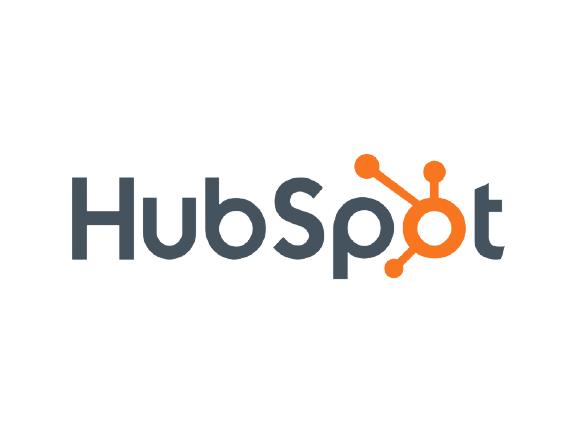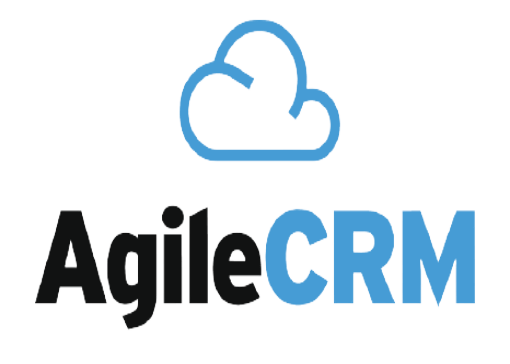Hubspot vs Zoho
Customer Relationship Management systems (CRM) have proven to be a booster in a business’s track to success and growth. The market offers a variety of options to choose from when looking for the right CRM systems for your business.
HubSpot and Zoho are continuously ranked among the most recommended CRMs for businesses. Both systems offer features that are suitable for small and medium sized enterprises. This can make choosing a CRM that truly fits for your business challenging.
In this article, we compare differences of the 2 in terms of pricing, scalability and customization, ease of use and adoption, as well as ongoing support.
What does HubSpot do?
HubSpot is a cloud-based CRM platform built with the aim to meet a business’ needs in terms of sales, service, marketing, and content management through its various features. Starting you off with its free version, the platform allows you to customize it according to your needs without dealing with much complexity hence allowing you to scale it up as your business grows.
What does Zoho do?
Zoho is a cloud-based CRM whose features are made to fit the needs of small to medium businesses at an affordable price. The CRM includes tools for sales and marketing automation, customer support and help desk, product configuration and reporting, as well as customer analytics.
Comparisons
1. Pricing
The price difference between HubSpot and Zoho can be analyzed by looking at the cost incurred when adding a user to each platform. Hubspot’s starter CRM suite costs 50$/mo for each paid user while allowing you to add as many free users (Lite users) as you need. On the other hand, Zoho CRM plus costs 50$/user/mo, meaning that every user that needs access to all the features of the platform past the trial period has to pay this cost. You can also add Lite users for a cost of 60$/user/year.
2. Scalability and customization
HubSpot allows you to still have control over how the tool works for you through its various customization features. Its custom objects let you add your own properties and associations to standard CRM objects such as contacts, companies, deals, and tickets with minimal developer resources.
Zoho does not give a lot of room for customization to their features, but some changes can be made to those features. Extensive modifications to the core design of their custom modules cannot be made. However, if you have the right development team, Zoho does offers an API that allows you to integrate your other tools into the CRM.
3. Ease of use and adoption
Hubspot’s feature layout and general presentation of its interface make the user experience a breeze. HubSpot ensures that it’s easy for users to find their way around as soon as they onboard through the in-built tutorials that guide them around each section of the platform which then reduces the time spent learning how to use the tool.
Zoho’s interface is not too complex but it might take some time for a user to adjust and know where to find everything as there are no inbuilt demos or extensive documentation. Some homework may be required so as to get a hang of the whole interface and be able to navigate easily.
4. Support
Hubspot aims at giving you support from day one, with its readily available support teams you get phone and email support at no extra cost for Pro and Enterprise customers. All HubSpot plans come with a chat section that allows for real-time contact with a person from the HubSpot team in case of any problems. In addition to that, Hubspot academy offers you online resources that give you insights on how to navigate around the Hubspot environment anytime you’re stuck or simply want to educate yourself more on how to make the most of your tool, all that at no cost.
Zoho’s support, on the other hand, is offered via their help-desk website that gives you documentation on relevant areas of the system. If you need further assistance, you can get in touch with them via email, phone call, or submit a ticket.
Having the right CRM is a game-changer that can drastically improve revenue and catapult your business to the next level. With the recent global changes in the economy, it is important that the CRM you choose best suits your business by providing you with all the tools you need.
Do your due diligence in picking a CRM for your business or go with our top recommendation, HubSpot. HubSpot is a Best Global Sellers award winner that is a top-quality, easy-to-use CRM consistently ranked at the top in CRM software comparisons. Being the only certified HubSpot partner in Africa, you can contact us today to get started. Let us do all the heavy lifting so you don’t have to…we will have your business up and running in less than 2 weeks!
Find out which CRM is best for your setup!
Hubspot vs Salesforce
A Customer Relationship Management (CRM) system is important in ensuring business success and growth but with so many options available, it can be tedious to identify which CRM best suits your company’s needs. In this article, we compare 2 of the most popular CRMs available in the market to help make your decision easy in choosing a platform that is right for your business.
HubSpot and Salesforce are both cloud-based platforms with sales, marketing and service applications. Providing businesses with solutions that can scale with growth has resulted in both platforms being consistently rated top amongst the many CRM options available. However, differences in the two become clear when you look at how these platforms were built and how their structure affects various aspects of a business such as pricing, scalability and customization, ease of use and adoption, along with continuous support. Below we compare the Enterprise plan (cost for a team of 50) of HubSpot’s Sales Hub and of Salesforce’s Sales Cloud.
Sales Hub overview
Sales Hub is a component of HubSpot’s all-in-one platform that features sales engagement software, conversation intelligence as well as sales analytics to help increase a business’ efficacy and revenue growth all while saving time.Sales Cloud overview
Sales Cloud on the other hand is a stand-alone CRM by Salesforce that supports a sales team through sales automation tools, reporting, and deal management.Comparisons
1. Pricing
To evaluate the overall pricing of each platform, we look at the breakdown of common expenses, mainly:- the cost of seats (licensing cost)
- implementation
- maintenance
- outbound calling software
- sales engagement software
- conversation, intelligence & call coaching software, and
- customer support costs.
Table showing cost comparison for a team of 50 (Enterprise Pricing)
| Expenses | Sales Hub (HubSpot) | Sales Cloud (Salesforce) |
|---|---|---|
| List price | $6,000/mo for 50 paid users | $7,500/mo for 50 users |
| Cost of seats | $120/mo for each additional paid user (unlimited free users) | $25 - $150/mo for every user depending on package |
| Implementation | A flat rate of $3000 for enterprise onboarding | $5000 for ‘Jump-Start’ implementation |
| Platform maintenance | Single code seamless platform | Multi-cloud integration for set-up and maintenance connectors |
| Outbound calling software | Included in all plans. Calling limits of 2,000 mins/user/mo apply for Enterprise | Calling and logging $40/user/mo (for 1,000 minutes) |
| Sales engagement software | Sales Hub enterprise version is inclusive of sales engagement features | Provided through Salesforce Engage for $50/user/mo |
| Conversation, intelligence and call coaching software | 1,500 transcription hours per account/mo with additional capacity available for purchase | High Velocity Sales ($75/user/mo) includes Einstein call coaching, Salesforce inbox, sequences, and queues |
| Customer support costs | Phone and email support included for all Professional and Enterprise plans | 20% of net cost for phone support and 24/7 coverage 30% of net cost for additional feature access |
In summary, HubSpot’s plan is inclusive of all advertised price features where you would only pay for additional seats while Salesforce charges for every user with some essential features being add-ons that would require additional payment.
2. Scalability and customization
Both softwares offer resources with growth in mind to allow for fast scaling and growth of businesses.
HubSpot provides a flexible data structure for your CRM with custom objects allowing for customization of objects like contacts, companies, deals, and tickets where you can add your own properties/associations between said objects without requiring a lot of developer resources. This allows for the popular all-in-one preference to best design and run your company.
Salesforce on the other hand has endless customizations available which, however, become less integrated the more data, users and processes you add. This means that more admin and developer support will be required to keep up with business growth of needs.
3. Ease of use and adoption
Hubspot has consistently been ranked as the most user-friendly CRM and B2B software due to its intuitive interface that is dedicated to bringing simplicity to any user. This makes it easy for teams to immediately delve into making productive use of the software instead of spending hours in training.
Salesforce with its wide range of customizable features comes at a cost. Implementation times will be longer because of the time needed for training.
4. Support
HubSpot’s support is readily available to all its customers via phone and email at no extra cost for Pro and Enterprise customers. All HubSpot plans come with a chat section that allows for real-time contact with a person from the HubSpot team in case of any problems. In addition, the Hubspot academy provides online resources that educate one on how to navigate HubSpot when in need of assistance or simply want to know more on how to maximize use of your tool, all at no cost.
Salesforce has 24/7 premier support that is offered at 20% of your net contract price and additional features at 30% of your net contract price. You would have to accurately forecast your support needs when choosing the support plan to anticipate what your team will need.
Having the right CRM is a game-changer that can drastically improve revenue and catapult your business to the next level. With the recent global changes in the economy, it is important that the CRM you choose best suits your business by providing you with all the tools you need.
Do your due diligence in picking a CRM for your business or go with our top recommendation, HubSpot. HubSpot is a Best Global Sellers award winner that is a top-quality, easy-to-use CRM consistently ranked at the top in CRM software comparisons. Being the only certified HubSpot partner in Africa, you can contact us today to get started. Let us do all the heavy lifting so you don’t have to…we will have your business up and running in less than 2 weeks!
Find out which CRM is best for your setup!
Top 5 Free CRMs That Will Make Your Customer Relationship Management a Breeze

“A satisfied customer is the best business strategy.”
Michael LeBoeuf, Business Author.
Giving the best service to your customers is an obvious key goal to the success of any business. However, in overseeing day-to-day operations or seasonal projects such as planning a new campaign, businesses may drop the ball on monitoring customer relations.
Not to worry! There are tools that can help your business focus on both its customers and daily operations, at the fore being a Customer Relationship Management (CRM) system. CRM is a software with which businesses can collect, store and manage customer information. A CRM does not just help plan and document deals with your current and prospective customers, it can also optimize business processes and so much more.
Below are our top 5 free CRMs we would recommend for your business.
HubSpot is a cloud-based inbound marketing, sales and customer service software that can help your company attract visitors, convert leads, and close deals. The HubSpot CRM helps organize and track your leads and customers through features like:
- contact management
- meeting scheduling
- leads communication tracking
- customer requests tracking
- email marketing, tracking and notifications
- deals tracking and pipeline management
- automated logging and updating of customer deals & sales activity
- website activity monitoring
- marketing campaigns analysis and reports
- WhatsApp messaging integration
- Gmail & Outlook integration and access to email templates
- live chat & chatbots for your website and so much more!
Yes, all of this is free and your entire team can enjoy the perks! HubSpot allows you unlimited free users that have access to every free feature on the CRM.
Bitrix24 is a cloud-based software available in 2 formats, an online cloud, and a self-hosted version, that is great for communication, management, and collaboration. The Bitrix24 CRM includes features like:
- contact management and storage
- report creation
- file sharing & versioning
- email marketing
- project & document management tools
- social media networking tools and so much more.
While giving you access to at least 90% of their tools, Bitrix24 doesn’t limit you on the number of users you add to their free version; you heard that right! Hop on this platform and see your business experience drastic changes that will directly improve your sales.
Zoho is a web-based CRM ideal for small businesses that allows you to have full flexibility of the sale cycle and includes features like:
- contact & deal management
- proposals, inventory & order management
- lead conversion & management
- live chat and much more.
With up to three users on their free version, the Zoho CRM gives you the space to automate, streamline and trigger instant actions that will leave your customers wondering how you know them so well!
Agile is a cloud-based CRM ideal for small and medium-sized businesses that combines core functionalities of sales, marketing, and service into one unified solution/platform. Agile CRM offers features like:
- contact management
- appointment scheduling
- project management
- landing-page builder and much more.
With the free Agile CRM version, you can have up to 10 users for your growing business! Get started and choose a plan that fits your business needs.
Insightly is a cloud-based visually dynamic and functionally intuitive CRM aimed at small and medium-sized businesses. The Insight CRM keeps your current and prospective customer data in one spot to optimize productivity and has features like:
- contact & lead management
- sales management
- web-to-lead capture
- workflow automation and much more
The free Insightly CRM version allows up to two users…sign-up and get started on improving your customer engagement!
Overall comparison
 Hubspot | Bitrix | Zoho |  Agile | Insightly | |
|---|---|---|---|---|---|
| Ease of use | 4.4 | 4.1 | 4.0 | 4.0 | 3.9 |
| Ease of setup | 4.2 | 4.0 | 4.1 | 4.0 | 3.8 |
| Quality of support | 4.5 | 4.2 | 3.9 | 3.9 | 3.8 |
| Features | 4.3 | 4.1 | 4.0 | 3.9 | 3.7 |
| Overall | 4.3 | 4.1 | 4.0 | 3.9 | 3.8 |
HubSpot is a top quality, easy-to-use CRM with excellent features that is consistently ranked at the top in CRM software comparisons. We are also a certified HubSpot partner so contact us today to get started. Let us do all the heavy lifting so you don’t have to…we will have your business up and running in less than 2 weeks!



